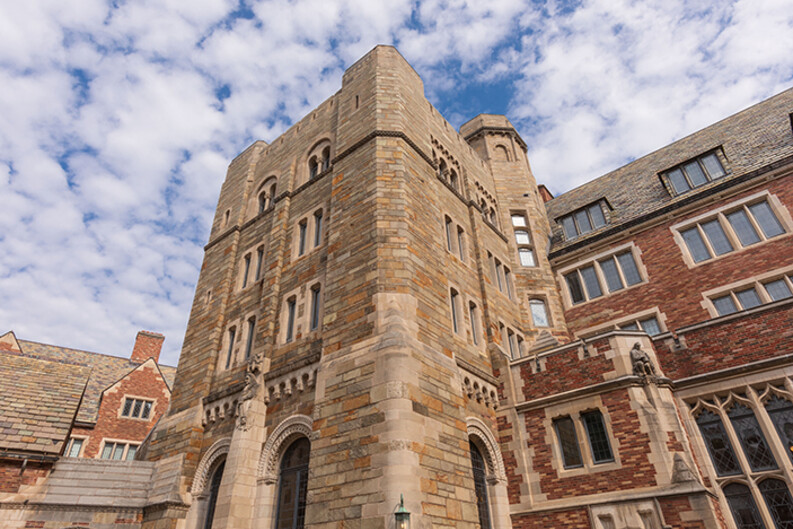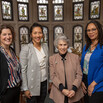End-of-Life Expert Addresses Medical Aid in Dying

Dr. Thaddeus Pope, a prominent expert in end-of-life and medical decision making, recently spoke at an event of the Solomon Center for Health Law and the Policy, Bioethics Interest Group, and Yale Interdisciplinary Center for Bioethics. Pope is a Professor of Law at Mitchell Hamline School of Law whose work includes medical law and clinical ethics.
The talk started with review of Medical Aid in Dying, or MAID, laws in the United States. There are currently 11 states where MAID is legally authorized. Although MAID remains illegal in a majority of states, polling suggests that a majority of Americans support the legalization of MAID, Pope said.
Pope compared the United States and Canada, which have different approaches to legally carrying out MAID. In the United States, patients are given a prescription for a drug cocktail that will cause death. No state permits euthanasia — a procedure in which a doctor administers life-ending drugs to the patient, typically intravenously. Patients who are unable to swallow a liquid solution or depress a plunger to administer the drugs rectally without help from another person are not eligible for MAID. In Canada, however, patients may choose euthanasia over self-administering the drugs. Most patients choose euthanasia.
Pope also spoke about barriers to accessing MAID and ethical considerations for increasing access. In the United States, only a few thousand people have chosen to enroll in a MAID program since Oregon became the first state to legalize MAID in 1997. Not everyone who enrolls in a MAID program ingests the drugs, he explained. Some enroll simply to have another option, and others intend to use the drugs but become ineligible or die naturally before they can do so. Medical providers are not required to participate in MAID programs, which may be a contributing factor to the small number of terminally ill people who choose to enroll, Pope noted. Community distrust of medical care, or a lack of knowledge about hospice, may also contribute to low enrollment.
The talk concluded with an exploration of the legal, ethical, and political questions that may arise as more states and countries consider legalizing MAID. Pope emphasized the challenge of informed consent, for both MAID and in medicine more broadly, and encouraged the audience to consider the issue.


